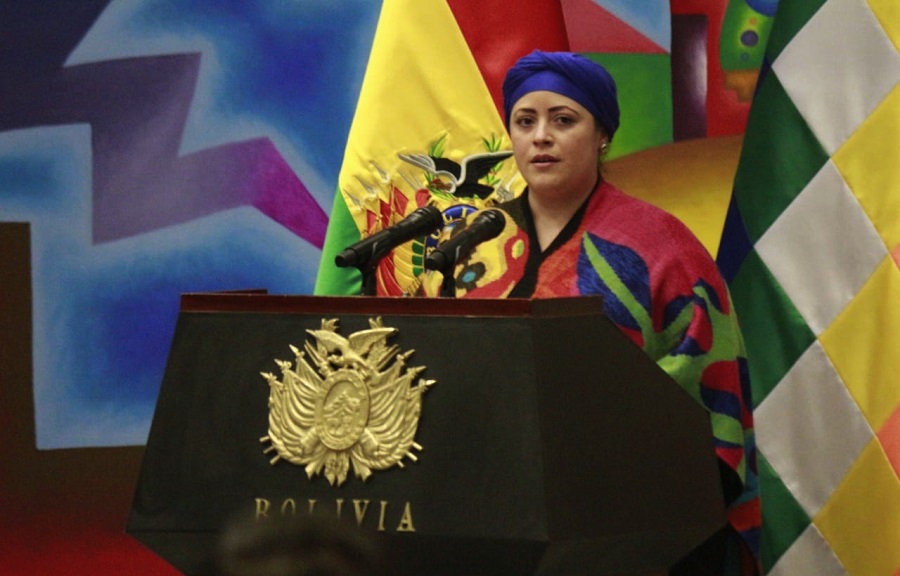RIO DE JANEIRO, BRAZIL – “The Executive Branch, by listening to the Bolivian people, listening to their concerns, listening to their fears in relation to this bill, has decided to withdraw it,” said Minister of the Presidency María Nela Prada.
The Minister said in a press conference at the Casa Grande del Pueblo that this decision is to “prevent destabilization,” violence and conflict, and also because President Arce governs “listening to the Bolivian people.”

Prada acknowledged that there were failures in the “discussion” of the bill and given “this absence of information,” sectors of the population have shown an unfounded concern that, in her opinion, were promoted by political groups seeking impunity.
“In the face of these failed attempts, they used the law to fight the Legitimization of Illicit Profits as an excuse to spread misinformation to sow fear among popular sectors of the Bolivian people,” she said.
Several sectors rejected the law as they considered that it violated freedom of expression and that it granted the Financial Investigations Unit (UIF) “extraordinary powers” to investigate their accounts.
MARCHES
On Thursday, the National Association of Oilseed and Wheat Producers (ANAPO) held a motorcade in eastern Santa Cruz against the challenged law.
The farmers drove to the Palace of Justice in Santa Cruz demanding a consensus on the law and that it be repealed, considering that the rule violates the rights of the people.
“We are producers, we have been accumulating and building assets, buying iron, land and little by little it is growing and if someday we will be investigated, this will affect us,” said producer Epifanio Surita.
This week several sectors such as trade unions and citizen organizations marched against this controversial law, in addition to a strike demanding the bill to be repealed, with several sectors announcing new marches for next week, among other measures.
The controversial law was “temporarily” suspended in early October due to doubts and observations from several sectors that expressed their rejection and decided it would be opened to dialogue.
On Thursday a “discussion” was held with the Federations of Community Councils (FEJUVE) of the city of El Alto, neighboring La Paz, with the participation of Economy Minister Marcelo Montenegro, where its members challenged the regulation and threatened to join the other sectors in their pressure measures.
OPPOSITION REACTIONS
“Bolivia wins and authoritarians, human rights violators and those who believe that the people do not know how to defend themselves lose. Battles for justice and democracy are coming. We will be there because united we can do anything,” wrote ex-president Carlos Mesa, leader of the main opposition party Comunidad Ciudadana.
From the opposition, Santa Cruz governor Luis Fernando Camacho said that this is a “new triumph of the Bolivian people.”
“The mobilized Bolivian people forced the government of Luis Arce to withdraw from the legislature yet another authoritarian law of the MAS party. With that law, any citizen could be arbitrarily investigated and stripped of their property,” Camacho wrote.
For his part, president of the Pro Santa Cruz Committee Rómulo Calvo, the group that led last Monday’s strike, thanked the Bolivian people for taking to the streets to express their “displeasure” with the government.

